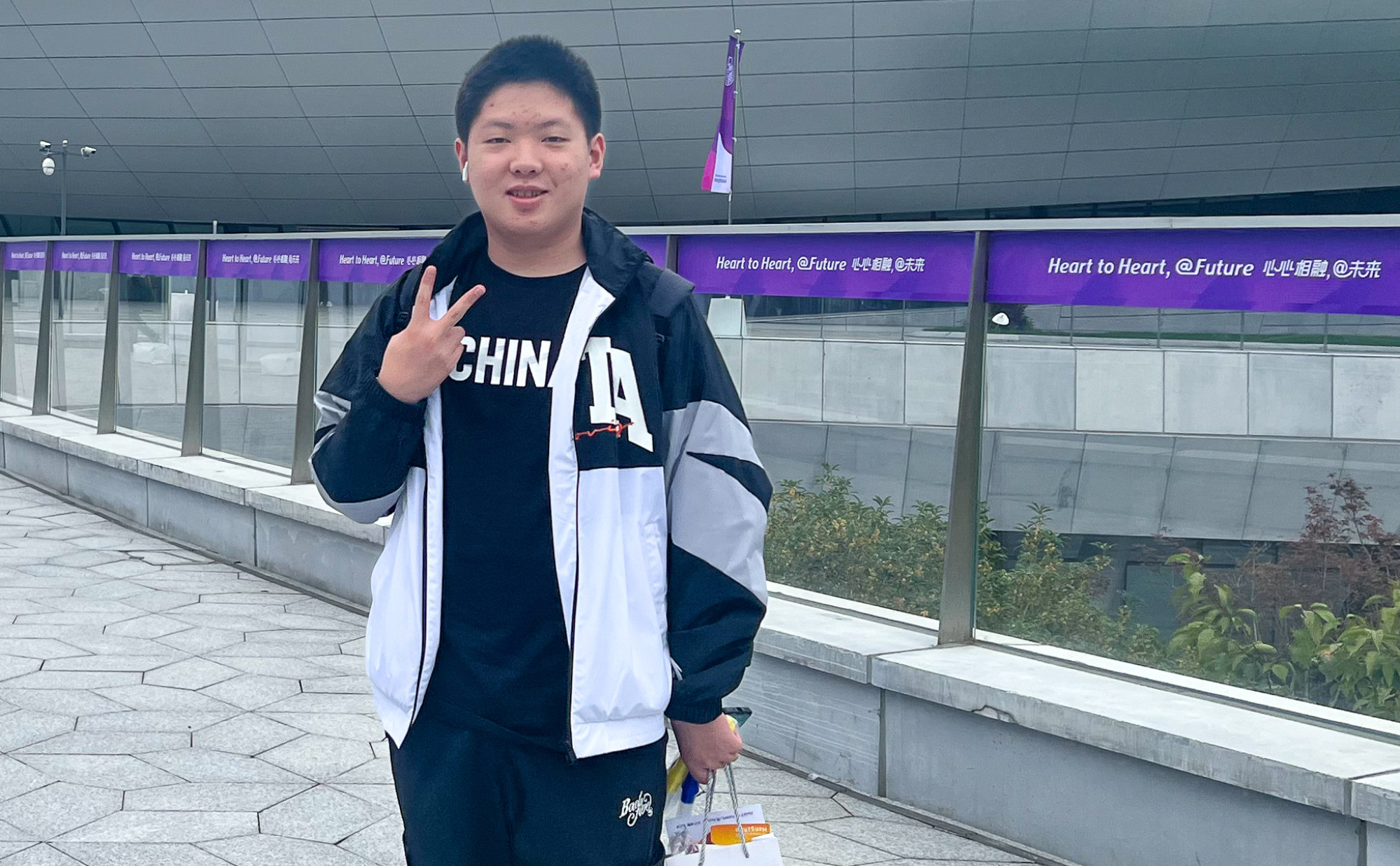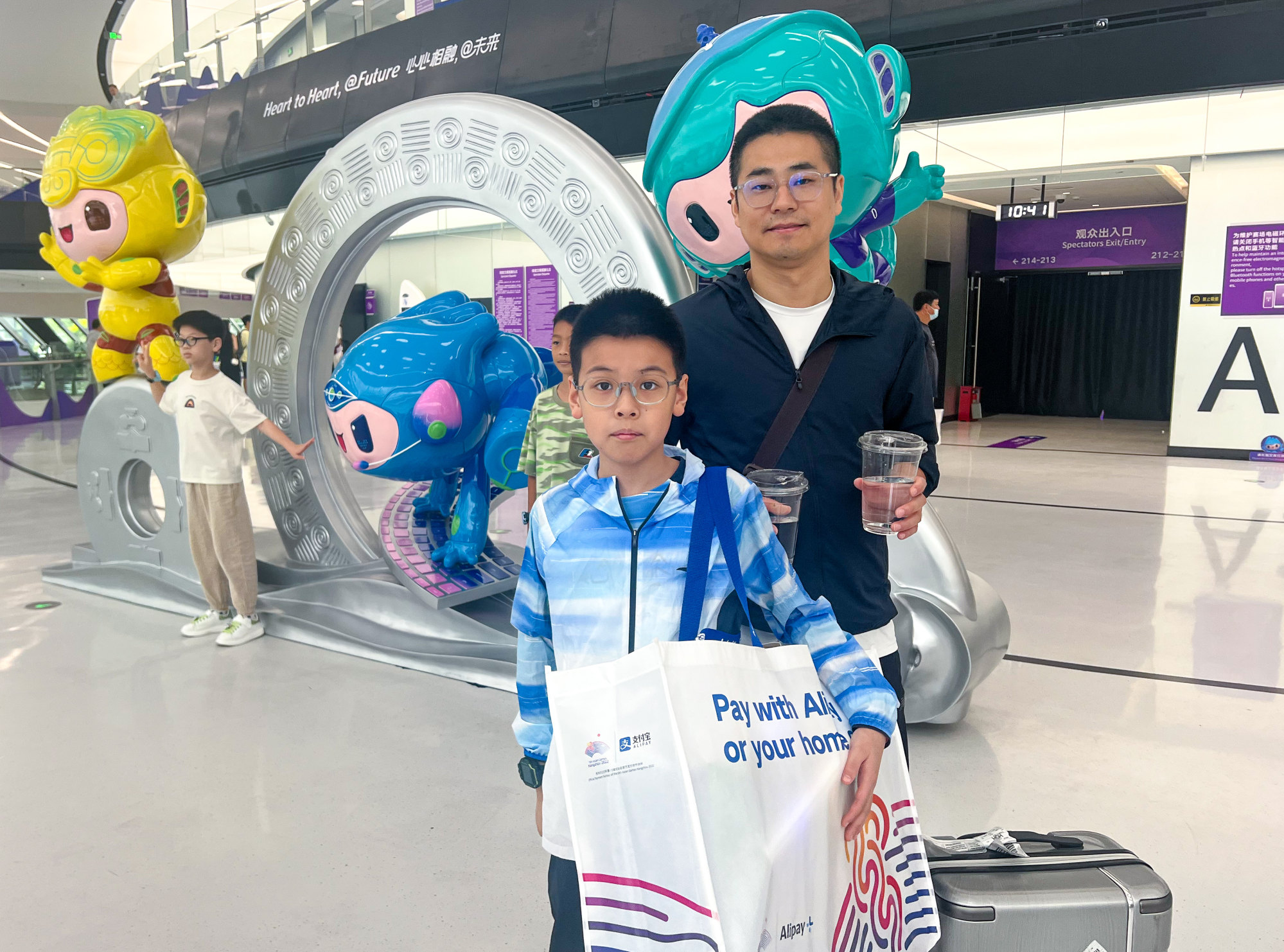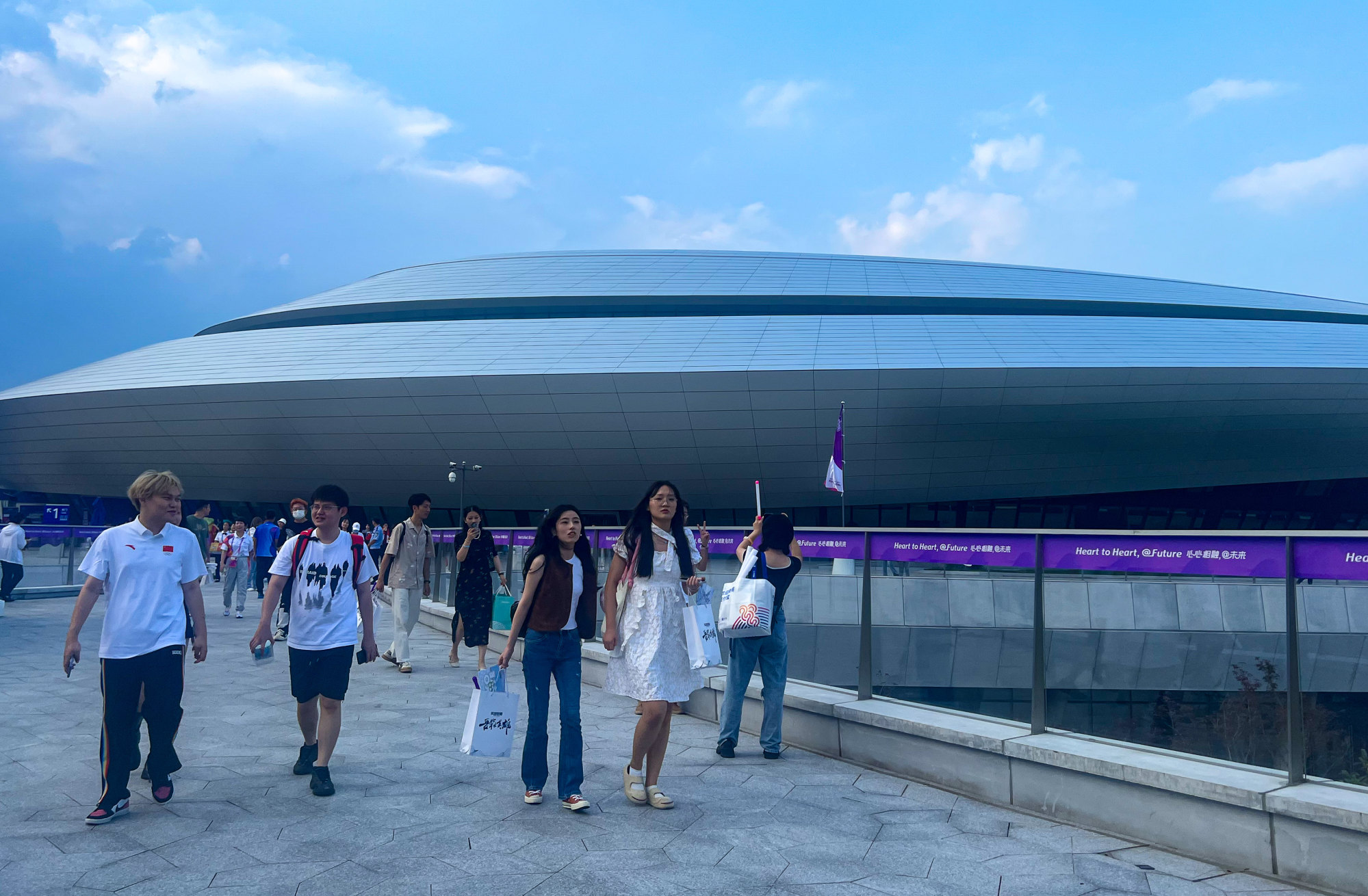
Asian Games 2023: China bags over half the gold medals at esports events even as Beijing maintains its harsh policies over video gaming
- Esports turned out to be one of the most popular Asian Games events – and the most widely discussed topic on Chinese social media over the past few weeks
- Despite official restrictions, Hangzhou is betting on video game competitions to generate excitement and boost its economy amid slower economic growth
China won four esports gold medals out of seven matches at the Asian Games in Hangzhou, providing a morale boost for the country’s video gaming fans who yearn for recognition of their hobby amid Beijing’s hostility towards the industry.
Tens of thousands of young Chinese, some joined by their parents, flocked to Hangzhou, capital of eastern Zhejiang province, to cheer teams competing in video games, which have been labelled “spiritual opium” by Chinese state media. Youth addiction to gaming is regarded as a “social problem” in China, leading to restrictions on players under the age of 18, who can only log into gaming accounts for a maximum of three hours per week.
But at the purpose-built Hangzhou Esports Centre over the weekend, the mood was different. “The matches are very exciting,” said Jin Kaijie, who travelled from the city of Zhuji in Zhejiang to watch a League of Legends competition between China and Vietnam. The title, created by US-based studio Riot Games but operated locally by Chinese gaming giant Tencent Holdings, has a huge fan base in the country. The 24-year-old Jin said he has been a fan since Tencent launched a professional tournament for the game in China in 2013.
China’s national teams won gold medals for the Asian Games versions of Arena of Valor and Peacekeeper Elite, Dream Three Kingdoms 2 and Dota 2, as well as a bronze for League of Legends. Esports turned out to be one of the most popular Asian Games events – and the most widely discussed topic on Chinese social media over the past few weeks.
Esports was the only competition in Hangzhou to deploy a lottery system for tickets due to the huge demand, as Chinese fans rushed to sign up for seats to view the events. After China won the gold medal for Dota 2 – a four-hour battle with Mongolia on Monday night – it quickly overtook China’s winning of the table tennis gold medal to become the top trending topic on social media platform Weibo.
“I signed up for every single competition during the holiday, and was lucky enough to secure a place for the Peacekeeper Elite match,” said Pu Guanlin, a 17-year-old student from the southwestern city of Kunming, who travelled to Hangzhou with his parents for the National Day holiday. It was also the first time that many Chinese people got to know esports, including the older generations.

On Saturday morning, Zhao Zhengjie, a Hangzhou native, took his 11-year-old son to watch the competition for Peacekeeper Elite, a localised version of PUBG Mobile, as the 40-year-old said it was “a very rare opportunity” for a Hangzhou native to support the debut of esports as an Asian Games medal event.
Despite official restrictions on the industry, Hangzhou is betting on video game competitions to generate excitement and boost its economy amid slower economic growth. Last November, the Hangzhou government pledged 100 million yuan (US$14 million) in annual funding for video gaming and esports. Since last year, the Hangzhou Esports Centre has hosted professional competitions sponsored by Tencent and rival games giant NetEase, a trend that looks set to continue even after the Asian Games has ended.
For the management of the purpose-built venue, the popularity of esports was beyond their expectation. Almost all the esports-related merchandise was sold out in the first few days, according to a staff member who worked in the venue’s merchandise shop.
However, the nine days of competitions are not just for cheers and applause. Esports, just like any other traditional sport, have now become a point of national pride in China.

When the Chinese League of Legends team, which was expected to take the gold medal again since winning a demonstration match at the 18th Asian Games in Jakarta, failed to advance to the finals after losing 0-2 to South Korea, patriotic Chinese fans took to social media to vent their disappointment.
“It was such a pity that we didn’t hear our national anthem, but that of South Korea, on the eve of the Mid-Autumn Festival,” said a user with the handle of “Douyou” on Chinese online forum Douban.
Sunyee Liu, a 22-year-old from the southern city of Shenzhen, said the loss would reduce her passion for professional video game competitions in the future.
For some young fans, China’s restrictions on video games have become too harsh.

Zhao said he allowed his son to play video games – especially Honour of Kings and Peacekeeper Elite – after school. “Times are changing and he is facing a more exciting world than when I was young,” he said, adding that time spent video gaming by kids should not “exceed a certain extent”.
However Pu, the high school student, said he hoped the rules could be relaxed in future.
“I will be studying every Friday night and get ready for school again on Sunday nights. That means I can only play for one hour each week [on Saturdays]. It would be better if they can relax the time frame so at least I can play for three hours a week,” said Pu.

